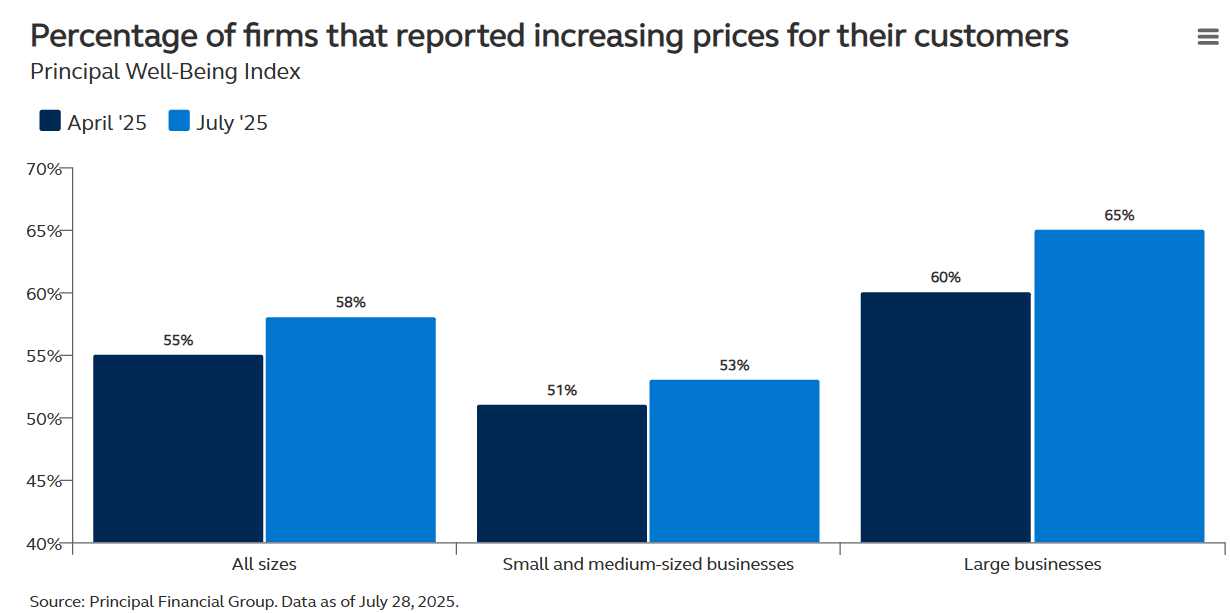Small businesses not yet increasing prices
Survey results from the Principal Well-Being Index showed that small and medium-sized businesses are likely to absorb cost increases from higher tariffs, largely in an effort to protect market share. Yet, with higher tariffs only coming into effect in August, margin pressures should continue to build, and the tariff pass-through effect to consumers may become more evident in the inflation data in the months ahead.

The latest Principal Well-Being Index showed that, as tariffs have risen, smaller businesses have been restrained in increasing prices—likely amid a focus on preserving market share.
The Principal Well-Being Index tracks sentiment across small and medium-sized businesses by asking eight questions about current conditions and the economic outlook. Now in its twelfth year, the latest survey was conducted from July 10 to 28. It gathered responses from 1,000 businesses, comparable in scale to the NFIB Small Business Optimism Index.
Survey results revealed that smaller businesses are more likely to absorb cost increases from higher tariffs than larger businesses. A combination of inventory run-down, elevated profit margins, and a desire to protect market share is adding incentives for small businesses to shoulder higher input prices, at least for now. Trade policy uncertainty has also created decision paralysis, leading to a “wait-and-see” mode among small businesses. Overall, these factors have likely contributed to the weaker tariff pass-through effect observed so far.
However, with higher tariffs only taking effect in August, smaller businesses are still in the early stages of adjustment. As profit cushions erode, the trade-off between preserving market share and protecting margins will sharpen, making tariff pass-through to consumers not just possible but increasingly probable. The coming quarters may reveal whether small businesses can continue to absorb shocks—or whether inflation pressures re-emerge through consumer prices.

